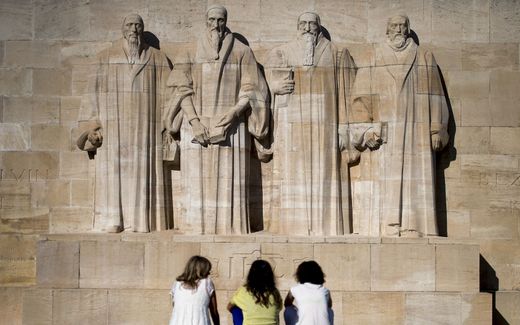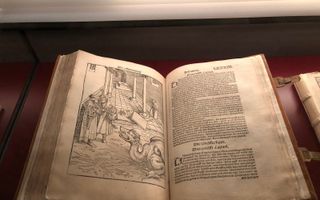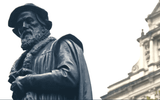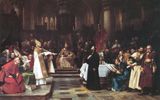Few American preachers have had as strong an impact in Europe as Dr. John MacArthur. The organisation Grace to You Europe aims to provide a follow-up on a spiritually unstable continent.

On this page, you can find all articles of Christian Network Europe regarding the Reformation.
Featured
All articles with this tag
What is the Reformation?
The Reformation was a church renewal movement in the 16th century. The aim was to bring the Christian church back to the authority of the Bible, as God's inspired word.
The Roman Catholic Church resisted the influence of the new Protestantism (among others with the Counter Reformation), but could not prevent that large parts of Europe came under the influence of Lutheranism or Calvinism.
Who were involved in the Reformation?
The main leaders of the Reformation were Martin Luther and John Calvin. The movement is understood to have started on 31 October 1517 with the well-known 95 Theses at the church's door in Wittenberg, with which he challenged certain practices of the Roman Catholic Church, especially the sale of indulgences.
Luther emphasized that salvation comes by faith alone (sola fide) and that the Bible is the only authority in matters of faith (sola scriptura).
Other big names of the Reformation are: William Farel, John Knox (mainly in Scotland), Theodore Beza, Martin Bucer and Guido de Bres.
What were the results of the Reformation?
The Reformation was a major religious movement in 16th-century Europe that changed Christianity forever. It began in 1517 when Martin Luther, a German monk, published his 95 Theses.
Luther's ideas spread rapidly, thanks to the printing press, leading to the formation of Protestant churches. Other key figures, like John Calvin in Switzerland and Huldrych Zwingli, further developed Reformation theology. In England, King Henry VIII broke away from the Catholic Church, establishing the Church of England.
The Reformation had profound effects beyond religion. It encouraged people to read the Bible in their own languages, boosting Bible translation, literacy and education. It also led to political and social changes, including wars and the rise of nation-states.
Today, the Reformation is remembered for promoting personal faith, challenging authority, and shaping modern Christianity. Its legacy continues to influence religious thought and practice around the world.
+++
keywords Lutheranism, Calvin, Counter-Reformation, Puritanism, Bible translation, religious freedom, Protestantism, Roman Catholicism.









